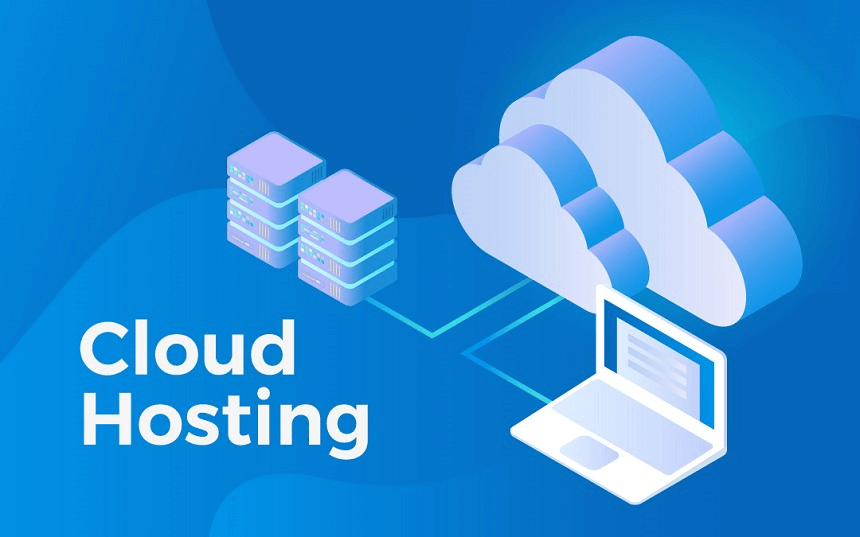Cloud Hosting: When should you use?
Cloud computing is an uprising trend in IT for businesses and is being employed by businesses globally. In cloud hosting, a virtual area is created for storing significant business files and supporting various applications that are accessed and used by licensed personnel and customers from any place and at any time. Such high-level upgraded technology has come within easy operational ranges with global access to the cloud.
Utilizing a centralized cloud server marvelously brings down expenses, because it removes the necessity of multiple codes, dedicated hardware, and expensive servers. Cloud solutions will cater to the heterogeneous necessities of shoppers, be it a private small-scale business or an enterprise of enormous scale. These solutions are extremely versatile and highly facilitate business activities.
What is Cloud Hosting?
Cloud hosting is the process of outsourcing an organization’s computing and storage resources to a service provider that offers its infrastructure services in a utility model.
The cloud provider oversees the setup, cloud infrastructure, security, and maintenance, while sometimes allowing clients to customize hardware and applications and scale servers online. Compute and storage resources are spread out across hundreds of virtual machines (VMs) that load balance I/O demands in a cloud infrastructure configuration.
The cloud hosting model is a cheaper alternative to the traditional dedicated server model that requires companies to build and manage their own data centers. In the traditional model, servers, and storage, with dedicated hardware and virtual resources, reside on-premises and can be a costly capital and operating expense for organizations.

How does it work?
Cloud hosting technology splits a physical server into multiple virtual machines. Management software – called a hypervisor – is installed on physical servers to connect them and create virtual servers, also called cloud servers. These virtual resources can be automated and delivered over the cloud for shared use in a single organization or across multiple organizations.
Each server in a cloud setting carries out specific tasks. For example, if a cloud service hosts your business website, if one server fails, another server will step in as a backup to ensure its ongoing availability. The cloud host distributes your website’s information through numerous redundancies to ensure it’s always available online for both you and your website visitors.
There are four primary cloud host categories:
- IaaS: Under the IaaS umbrella, users receive the virtualized hardware resources needed to install their own software environment.
- PaaS: On the PaaS side, users are provided with a software environment through which they can install and develop web applications more quickly.
- Serverless computing: Serverless computing isn’t fully server-independent. Serverless computing still requires servers to run the code to make it work. What makes it “serverless” is the ability for developers to build applications faster by eliminating the need for them to manage infrastructure.
- SaaS: SaaS is a software delivery method through which the end user can access and use an application remotely via internet browsers. A vendor houses and maintains the hardware that runs the application.
Benefits of Using Cloud Hosting
- Traffic Load Balance – If you are running a website that gets a lot of traffic, then cloud hosting is the best option for you. Because a load of heavy traffic will get divided among multiple servers. Your website will perform flawlessly when your visitors visit the website.
- High Reliability – Your website will rely on multiple interconnected servers. When a server fails, the rest of the servers will share the load of that server and keep your website running. That’s why Cloud hosting is highly reliable because it is almost impossible that all the servers will fail at once.
- Better Security – If you are using Cloud hosting for your website, there are significantly fewer chances of facing any disaster or physical malfunctions. All the servers are in a virtual environment, so there is no possibility of physical malfunction. Your website will not face any DDoS attacks because of its balancing feature.
- Scalability – Your website is not limited to one server in cloud hosting. Your website will not face issues related to storage, bandwidth, or computing power. The growth potential in cloud hosting is much better than traditional web hosting.

When should you use Cloud Hosting?
Cloud hosting is an extremely flexible hosting solution. It supports companies like Netflix, which demand high performance, bandwidth, and 100% uptime, all the way down to startups that are just starting to scale their traffic levels and services.
As a result of its flexibility cloud hosting is available at multiple levels, from enterprise organizations to individuals who run high-traffic blogs.
At the higher level, cloud hosting can be great for organizations that need to have near-perfect uptime and want to grow their servers as they see fit, without experiencing any delay. Working with a high-quality cloud hosting provider can offer you solid security, and very speedy site performance.
Cloud web hosting is also a great fit for website owners who experience a decent level of traffic and see traffic spikes that tend to slow down their sites, or even bring them offline. If you’re getting higher levels of traffic you also have the option of a dedicated server and a virtual private server, but these options might not offer you the scalability you’re looking for.
The Future of Cloud Hosting
Small businesses and big companies are constantly looking for the best solutions to optimize their workload and end-user experience.
Cloud hosting plays a significant role in that. Benefits like easy scalability, maximum availability, high traffic resilience, and resistance against hardware failure mean their online business can serve customers at any time.
So, it is no wonder that there has been a rise in cloud computing migration. 61% of companies have relocated their operations to the cloud network in the past year. 46% of businesses found they have reduced their expenses significantly after the migration, so this move is likely to continue in the future.

Conclusion
Cloud hosting is the most significant refinement to various physical server farms to date. Sadly, the data needed to create such setups remain terribly archaic – but it’s attaining momentum rapidly. This particular tech sphere is flourishing with news regarding cloud computing and its high potency with minimal energy consumption.